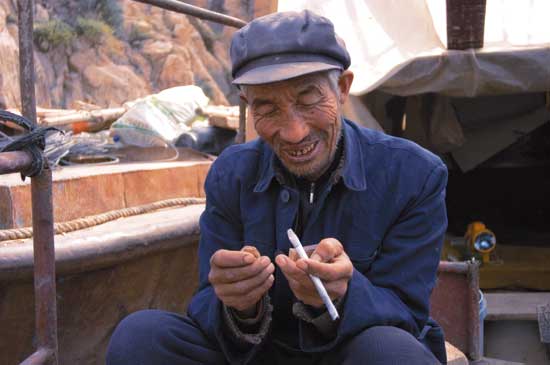Documentary about people living on the dead shown in 798 district
 |
|
Li family member Wei Yingquan on his boat. [Global Times] |
"Some of the bodies may be taken away by their families, what about the rest? Will they reach the other shore?" Zhou said.
"I was wondering where those bodies would go and how they would be treated. I also want more people to think about it."
Usually, unidentifiable bodies are tied by ropes in the water with one end of the rope attached to the shore. If nobody comes to claim the body after a few days, Li and his family members have no choice but to return the body to the river.
"Many people come here to look for bodies," Li Heshan said in the documentary. "Most of them are grateful. We do not have the right to burn or bury bodies, but I do wish there was a place that those leftover bodies belonged to."
Li said that it would great if the local government could build a funeral parlor where unclaimed bodies could be sent.
"They could record the features of the bodies, freeze them and wait for their families to come," Li said.
"I was touched," documentary lover Liu Yan told the Global Times after watching The Other Shore. "No matter how people see the boatmen who make money out of the dead, I was surprised because the director paid attention toward the disadvantaged group, the dead."
"It is complicated," said audience member Liu Yishu. "I felt bad to see them fishing bodies like fishing boxes out of the water, but after all they are just simple people who try to make a living. If one day I need them to find someone from my family, I will be appreciative even if I have to pay afterwards."
 0
0 







Go to Forum >>0 Comments